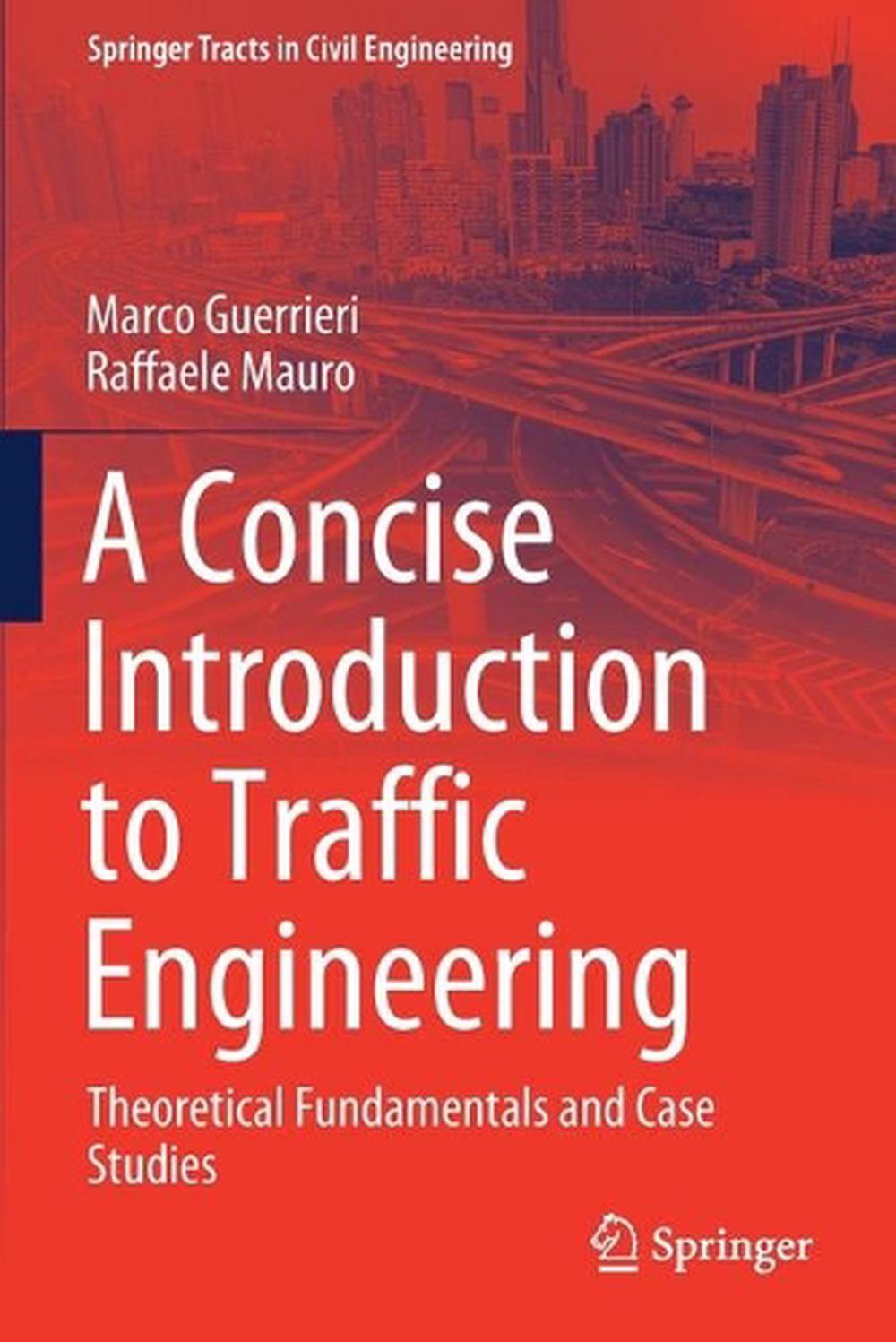
When you click on links to various merchants on this site and make a purchase, this can result in this site earning a commission. Affiliate programs and affiliations include, but are not limited to, the eBay Partner Network.
A Concise Introduction to Traffic Engineering: Theoretical Fundamentals and Case

- Item No : 156970716118
- Condition : Brand New
- Brand : No brand Info
- Seller : the_nile
- Current Bid : US $78.34
-
* Item Description
-
The Nile on eBay

A Concise Introduction to Traffic Engineering
by Marco Guerrieri, Raffaele Mauro
The treatment is concise but it does not neglect to examine the most recent and crucial theoretical aspects which are at the root of numerous highway engineering applications, like, for instance, the essential aspects of highways traffic stream reliability calculation and automated highway systems control.
FORMAT
PaperbackLANGUAGE
EnglishCONDITION
Brand New
Publisher Description
This book covers a selection of fundamental topics of traffic engineering useful for highways facilities design and control. The treatment is concise but it does not neglect to examine the most recent and crucial theoretical aspects which are at the root of numerous highway engineering applications, like, for instance, the essential aspects of highways traffic stream reliability calculation and automated highway systems control. In order to make these topics easy to follow, several illustrative worked examples of applications are provided in great detail. An intuitive and discursive, rather than formal, style has been adopted throughout the contents.As such, the book offers up-to-date and practical knowledge on several aspects of traffic engineering, which is of interest to a wide audience including students, researchers as well as transportation planners, public transport specialists, city planners and decision-makers.
Back Cover
This book covers a selection of fundamental topics of traffic engineering useful for highways facilities design and control. The treatment is concise but it does not neglect to examine the most recent and crucial theoretical aspects which are at the root of numerous highway engineering applications, like, for instance, the essential aspects of highways traffic stream reliability calculation and automated highway systems control. In order to make these topics easy to follow, several illustrative worked examples of applications are provided in great detail. An intuitive and discursive, rather than formal, style has been adopted throughout the contents. As such, the book offers up-to-date and practical knowledge on several aspects of traffic engineering, which is of interest to a wide audience including students, researchers as well as transportation planners, public transport specialists, city planners and decision-makers.
Table of Contents
Macroscopic variables and fundamental relationships of traffic flow theory.- Macroscopic traffic flow models.- Continuity flow equation, kinematic waves and shock waves.- Microscopic models and traffic instability.- Fundamentals of random and traffic processes.- Traffic management and control systems.- Interference between traffic flows: the gap acceptance theory.- Queue formation: general models.- Unsignalized intersections.
Feature
Explores the fundamentals of traffic flow theory and control Provides real-world case studies which clarify the applications of traffic models Serves as useful practical and educational tool
Description for Sales People
The book covers the fundamental topics of traffic engineering useful for highways facilities design and control. It examines the most recent and crucial theoretical aspects which are at the root of numerous highway engineering applications, such as the essential aspects of highways traffic stream reliability calculation and automated highway systems control.
Details
ISBN3030607259Author Raffaele MauroShort Title A Concise Introduction to Traffic EngineeringPages 196Series Springer Tracts in Civil EngineeringLanguage EnglishYear 2021ISBN-10 3030607259ISBN-13 9783030607258Format PaperbackSubtitle Theoretical Fundamentals and Case StudiesDEWEY 388.312Publisher Springer Nature Switzerland AGImprint Springer Nature Switzerland AGPlace of Publication ChamCountry of Publication SwitzerlandPublication Date 2021-12-16UK Release Date 2021-12-16Illustrations 90 Illustrations, black and white; XVI, 196 p. 90 illus.Edited by Suryadipta MajumdarBirth 1974Affiliation European University Viadrina, GermanyPosition journalistQualifications Ph.D.Alternative 9783030607227Audience Professional & VocationalEdition Description 2021 ed.Edition 2021st


-
- NO GRID Survival Projects
- $ 37.00
















